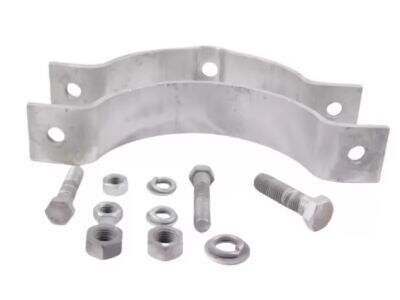Tension clamps are widely used in the construction, engineering and manufacturing industries. These clamps are essential when you need to fasten or hold various materials. Yet, the mechanical properties of clamp tension supply are critical to its utility and reliability.
A detailed knowledge of the influence of material strength on tension clamps supply is critical for its long-term performance and durability. The term material strength is the ability of a material to withstand an applied load without failure. In the case of Tension Clamp Power Accessories the clamping force may be adjusted upwards of varying degrees of clamping force with the strength of the material alone preventing sliding on a part.
The importance of using robust materials in tension clamps cannot be overemphasised.
If the clamps are made of inferior materials they can break while under tension, causing a disaster of accidents, injuries, and possible loses of other property. Manufacturers can ensure the tension clamp is safe and secure by using heavy duty materials like high-quality stainless steel or reinforced plastics.
Material strength effect on Tension Clamps
The performance can be seen as the ability to resist different levels of tension and pressure. Tension clamps by Dingcheng made of brittle materials can also fail under heavy loads and in adverse conditions, causing the materials, which it was holding, to be unstable. Alternatively, the tension clamps which are fabricated from strong materials can withstand considerable levels of tension without distorting or releasing their grip.
It is important to choose the right material for tension clamps
It involves the weight-ratio strength, anticorrosion and temperature resistance. The strength to weight ratio plays a key role in the performance of tension clamps, this ratio is important for these devices to be able to withstand heavy loads without excess mass or volume. Resistance to corrosion is another factor to be considered, particularly in industries where dry, moist, or harsh exposures are prevalent. The temperature resistance of the material is also adapted appropriately to the operating conditions of the tension clamps in order to avoid early failure.
Conclusion
The use of tough materials for tensile clamp supply system is of great importance to guarantee reliable and safe usage of these vital components. By selecting high-quality and durable materials, producers can ensure the reliability, even under different purposes, of their tension clamps. This in turn provides greater safety at the workplace and lowers the risk of accidents or defective function due to poor material quality.

